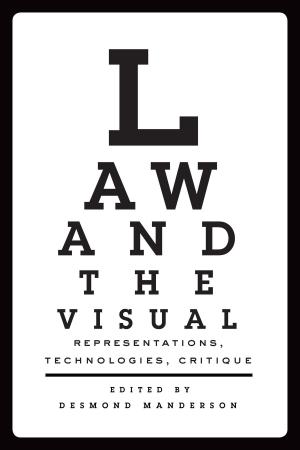Culture, Communication and National Identity
The Case of Canadian Television
Nonfiction, Science & Nature, Technology, Television & Video, Social & Cultural Studies, Social Science, History| Author: | Richard Collins | ISBN: | 9781442654921 |
| Publisher: | University of Toronto Press, Scholarly Publishing Division | Publication: | October 1, 1990 |
| Imprint: | Language: | English |
| Author: | Richard Collins |
| ISBN: | 9781442654921 |
| Publisher: | University of Toronto Press, Scholarly Publishing Division |
| Publication: | October 1, 1990 |
| Imprint: | |
| Language: | English |
‘There can be no political sovereignty without culture sovereignty.’ So argued the CBC in 1985 in its evidence to the Caplan/Sauvageau Task Force on Broadcasting Policy. Richard Collins challenges this assumption. He argues in this study of nationalism and Canadian television policy that Canada’s political sovereignty depends much less on Canadian content in television than has generally been accepted. His analysis focuses on television drama, at the centre of television policy in the 1980s.
Collins questions the conventional image of Canada as a weak national entity undermined by its population’s predilection for foreign television. Rather, he argues, Canada is held together, not by a shared repertoire of symbols, a national culture, but by other social forces, notably political institutions.
Collins maintains that important advantages actually and potentially flow from Canada’s wear national symbolic culture. Rethinking the relationships between television and society in Canada may yield a more successful broadcasting policy, more popular television programming, and a better understanding of the links between culture and the body politic.
As the European Community moves closer to political unity, the Canadian case may become more relevant to Europe, which, Collins suggests, already fears the ‘Canadianization’ of its television. He maintains that a European multilingual society, without a shared culture or common European audio-visual sphere and with viewers watching foreign television, can survive successfully as a political entity – just as Canada has.
‘There can be no political sovereignty without culture sovereignty.’ So argued the CBC in 1985 in its evidence to the Caplan/Sauvageau Task Force on Broadcasting Policy. Richard Collins challenges this assumption. He argues in this study of nationalism and Canadian television policy that Canada’s political sovereignty depends much less on Canadian content in television than has generally been accepted. His analysis focuses on television drama, at the centre of television policy in the 1980s.
Collins questions the conventional image of Canada as a weak national entity undermined by its population’s predilection for foreign television. Rather, he argues, Canada is held together, not by a shared repertoire of symbols, a national culture, but by other social forces, notably political institutions.
Collins maintains that important advantages actually and potentially flow from Canada’s wear national symbolic culture. Rethinking the relationships between television and society in Canada may yield a more successful broadcasting policy, more popular television programming, and a better understanding of the links between culture and the body politic.
As the European Community moves closer to political unity, the Canadian case may become more relevant to Europe, which, Collins suggests, already fears the ‘Canadianization’ of its television. He maintains that a European multilingual society, without a shared culture or common European audio-visual sphere and with viewers watching foreign television, can survive successfully as a political entity – just as Canada has.















